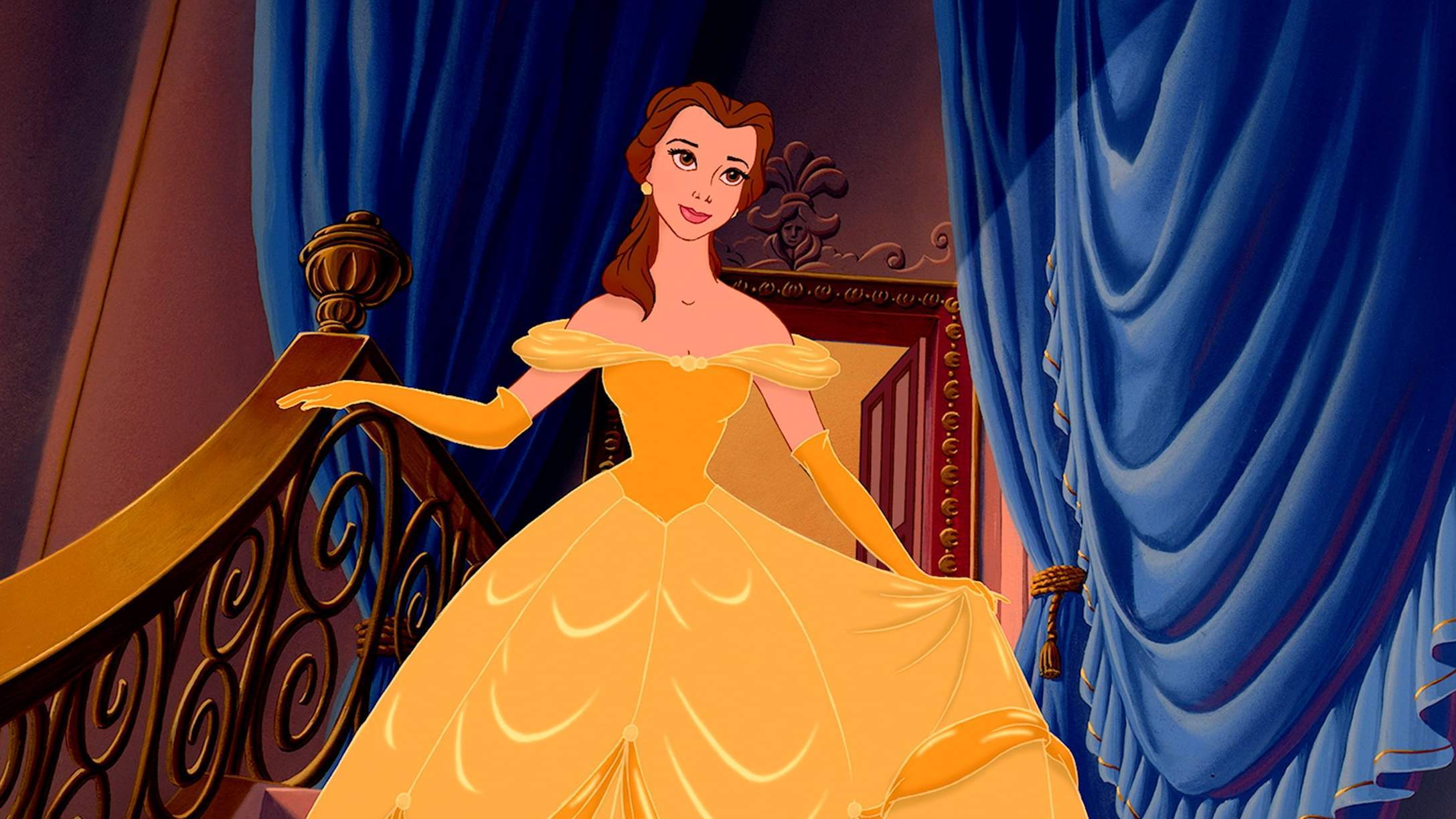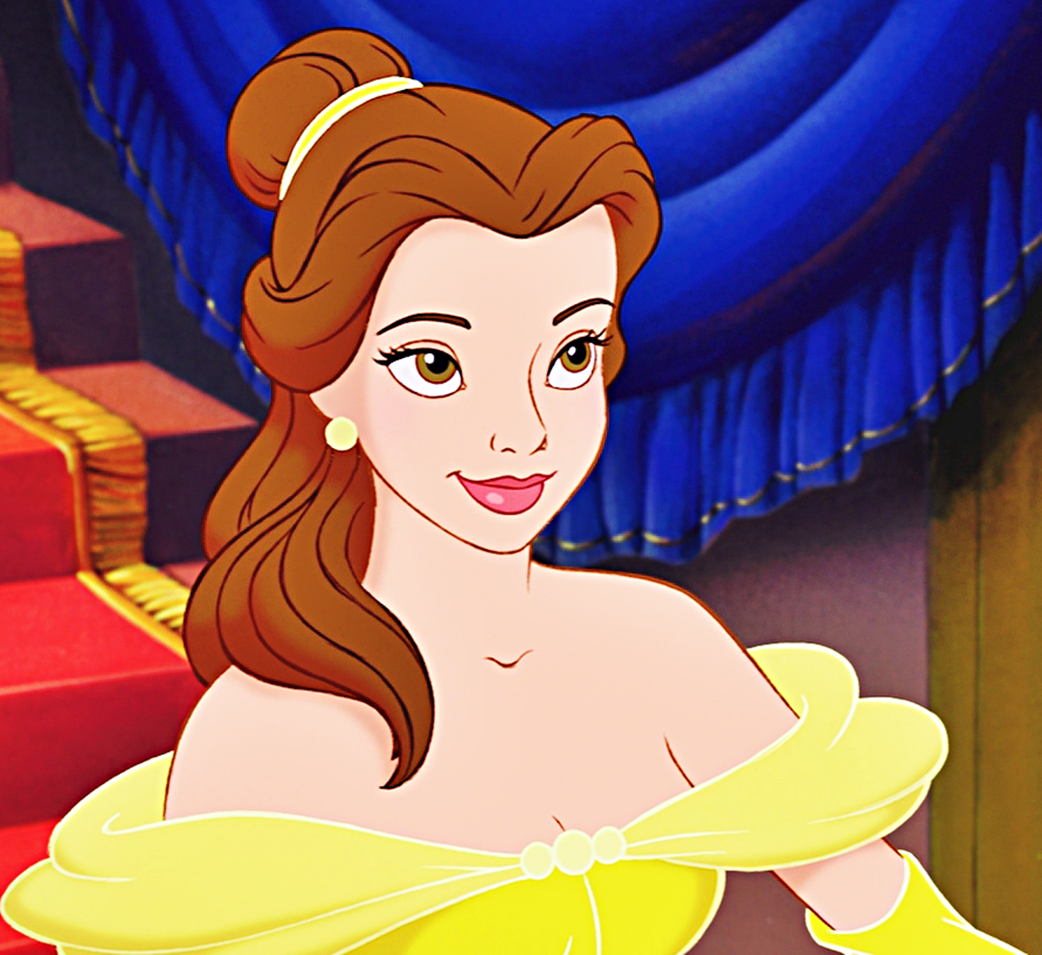Belle Gibson Jail: Unpacking The Truth Behind The Wellness Scam
Table of Contents
- The Story of Belle Gibson: A Wellness Empire Built on Lies
- Personal Data & Background
- The Deception Unveiled: What Belle Gibson Was Charged With
- Did Belle Gibson Go to Jail? The Legal Fallout Explored
- The Federal Court's Verdict and Fines
- Why No Jail Time for Belle Gibson?
- The Unpaid Fines: A Continuing Saga
- Netflix's "Apple Cider Vinegar": Reintroducing the Scam
- The Series' Portrayal of Belle Gibson's Fate
- The Ethical Implications: Trust, Wellness, and Public Deception
- Lessons Learned from the Belle Gibson Case
- Where is Belle Gibson Now?
The Story of Belle Gibson: A Wellness Empire Built on Lies
Annabelle Natalie Gibson, born on October 8, 1991, rose to prominence in the mid-2010s as an Australian health fraudster, former influencer, and pseudoscience advocate. Her meteoric rise was predicated on a deeply personal and utterly fabricated narrative: that she had been diagnosed with terminal brain cancer and had miraculously cured herself through natural remedies and a healthy diet. This compelling, albeit false, story resonated with millions, particularly those seeking alternative health solutions or simply inspiration in the face of adversity. Gibson leveraged her online presence to cultivate a massive following, sharing her "journey" and advocating for a lifestyle she claimed had saved her life. This culminated in the creation of "The Whole Pantry" mobile app and its later companion cookbook, both of which became highly successful. The app, in particular, was lauded by Apple and even pre-installed on the Apple Watch, cementing Gibson's status as a wellness guru. Her brand was built on the premise of authenticity, resilience, and the power of natural healing, drawing in vulnerable individuals and those eager to believe in a miraculous recovery. However, the foundation of her empire was a house of cards. Belle Gibson lied about having cancer, surgeries, and even charitable donations, all designed to boost her online presence and profit. The deception was not merely about personal gain; it had far-reaching implications, misleading countless individuals about serious health conditions and promoting unproven, potentially dangerous, health advice. The public's trust, especially in the sensitive realm of health and wellness, was profoundly betrayed by her actions.Personal Data & Background
| Full Name | Annabelle Natalie Gibson |
| Born | October 8, 1991 |
| Nationality | Australian |
| Known For | Health fraud, former wellness influencer, pseudoscience advocacy, author of "The Whole Pantry" app and cookbook. |
| Key Deception | Faked terminal brain cancer diagnosis and claimed self-cure through natural remedies; misrepresented charitable donations. |
The Deception Unveiled: What Belle Gibson Was Charged With
The elaborate facade Belle Gibson constructed began to unravel when inconsistencies in her story emerged, particularly regarding her cancer diagnosis and the charitable donations she claimed to have made. Journalists and former associates started questioning the veracity of her claims, leading to a public outcry and official investigations. The core of her deception revolved around her false medical claims and her misleading representations of charitable giving. Specifically, Belle Gibson lied about having a brain tumour and monetized this fabricated illness. She claimed to have cured herself using natural remedies, which formed the basis of her "Whole Pantry" brand. Beyond the health claims, a significant part of her downfall stemmed from her pledges to donate a portion of her earnings to various charities. In March 2017, Australia's Federal Court found that she had made deceptive and misleading representations surrounding donations to charities. These included well-known organizations such as One Girl and the Asylum Seeker Resource Centre, as reported by the Herald Sun. The charges against her were not criminal charges that typically lead to imprisonment, but rather civil charges related to consumer law violations. Consumer Affairs Victoria, a government body, brought the case against her for engaging in misleading and deceptive conduct under Australian consumer law. The focus was on her false claims about her illness and her failure to pass on promised donations to charities, which constituted a breach of consumer trust and fair trading practices. These actions, while deeply unethical and harmful, fell under the purview of civil penalties rather than immediate criminal prosecution for fraud leading to a jail sentence. The legal system viewed her actions as a breach of consumer trust and fair trading, rather than a criminal act warranting incarceration.Did Belle Gibson Go to Jail? The Legal Fallout Explored
This is the burning question that many people ask when reflecting on the Belle Gibson scandal: did the real Belle Gibson go to jail? Given the scale of her deception and the public outrage it generated, it's a natural assumption that such a significant breach of trust would lead to imprisonment. However, the reality of the legal outcome is often more complex than public perception might suggest. The short answer to "Did Belle Gibson go to prison?" or "Did Belle Gibson ever go to jail?" is a resounding **no**. Despite the severity of her lies and the profound impact they had on her followers and the wellness industry, Belle Gibson did not serve any jail time. This fact often comes as a surprise to those who followed her story, especially in light of the significant financial penalties imposed upon her.The Federal Court's Verdict and Fines
While Belle Gibson did not face imprisonment, she certainly did appear in court and was subjected to significant legal repercussions. In March 2017, Australia's Federal Court found her guilty of making deceptive and misleading representations. The court determined that she had engaged in unconscionable conduct by falsely claiming to have cancer and by failing to donate promised funds to charities. As a result of these findings, she was fined a substantial amount: $410,000 in 2017. This was a civil penalty, intended to punish her for her misleading conduct and to deter others from similar actions. The fine was a clear signal from the court that her actions were a serious breach of consumer law and public trust. The court order was a definitive legal judgment against her, holding her accountable for her widespread deception.Why No Jail Time for Belle Gibson?
The absence of a jail sentence for Belle Gibson often perplexes the public. To understand why she didn't go to jail, it's crucial to distinguish between civil and criminal legal proceedings in Australia. The case against Belle Gibson was brought by Consumer Affairs Victoria, a consumer watchdog, under consumer protection laws. These laws primarily deal with misleading and deceptive conduct in trade or commerce and typically result in civil penalties, such as fines, rather than criminal convictions leading to imprisonment. While her actions were undeniably fraudulent in a moral sense, they did not meet the specific thresholds for criminal charges that would typically result in jail time in this context. Criminal fraud charges, which can lead to imprisonment, often require a higher burden of proof and specific intent to defraud, and are usually pursued by police or public prosecutors. In Gibson's case, the focus was on the misleading nature of her business practices and the harm caused to consumers and charities, which fell under civil jurisdiction. The legal system, in this instance, opted for a substantial financial penalty as the primary form of retribution and deterrence. As the show *Apple Cider Vinegar* depicts, Belle did not spend any time in jail. In the final moments of the series, we see Kaitlyn Dever’s Belle Gibson breaking the fourth wall to address her fate, confirming that imprisonment was not part of her real-life legal consequences. This portrayal aligns with the actual legal outcome, highlighting the distinction between public perception of justice and the specifics of legal classifications.The Unpaid Fines: A Continuing Saga
The story of Belle Gibson's legal fallout doesn't end with the imposition of the $410,000 fine. In fact, a significant part of the ongoing narrative revolves around her failure to pay this substantial penalty. Not only has Gibson seen zero jail time, but she has yet to pay the fines imposed upon her. This has been a point of contention and frustration for many, including the legal authorities tasked with enforcing the judgment. Despite the court order, Gibson has consistently failed to make significant payments towards the fine. In a 2017 letter later released by the Federal Court, Gibson claimed she was $170,000 in debt and had only $5,000 to her name, suggesting an inability to pay. However, her financial circumstances have been a subject of scrutiny, particularly given her previous earnings from "The Whole Pantry" empire. The lack of payment has led to further legal action. Consumer Affairs Victoria has pursued enforcement proceedings to compel her to pay the fine, including examinations into her financial affairs. This ongoing battle highlights the challenges of enforcing civil penalties, especially when the individual claims limited assets. The unpaid fine remains a significant aspect of Belle Gibson's legal legacy, serving as a constant reminder of her deception and the unfulfilled demands of justice.Netflix's "Apple Cider Vinegar": Reintroducing the Scam
Netflix’s 2025 series *Apple Cider Vinegar* has undeniably reintroduced scammer Belle Gibson to a new generation of viewers and reminded older ones of her infamous story. The limited series, based on the true story of Belle Gibson, tells the tale of an Australian wellness influencer who deceived millions into believing she had terminal cancer and claimed to have cured it with natural remedies. The show features Kaitlyn Dever playing the role of the Australian scammer, bringing a fictionalized yet accurate portrayal of her deception to a global audience. The series aims to explore the rise and fall of Gibson's wellness empire, detailing how she faked a brain cancer diagnosis and built a brand around this lie, including the launch of "The Whole Pantry" app and cookbook. It delves into the manipulative tactics she employed and the profound impact her false claims had on her followers, many of whom were vulnerable individuals seeking hope and guidance.The Series' Portrayal of Belle Gibson's Fate
One of the most anticipated aspects of the Netflix series is how it addresses the legal consequences Belle Gibson faced. Does Belle end up in prison in *Apple Cider Vinegar*? The answer, consistent with real life, is no. The show accurately reflects that Belle Gibson doesn’t go to jail. In the final moments of the series, we see Dever’s Belle Gibson breaking the fourth wall to address her fate, implicitly confirming that imprisonment was not part of her real-life legal outcome. While the series does a commendable job of fictionalizing her story and investigating the phenomenon of online con artists, as explored by Lynsey Eidell in "The Search for Instagram's Worst Con Artist," it stops short of showing the messy legal fallout following Gibson's professional implosion, particularly the ongoing saga of the unpaid fines. The focus remains on the deception itself and its immediate consequences, rather than the protracted legal enforcement battles. This choice, while perhaps simplifying the narrative for dramatic purposes, accurately conveys the core truth that Belle Gibson did not serve any jail time.The Ethical Implications: Trust, Wellness, and Public Deception
The Belle Gibson case transcends a mere story of individual fraud; it serves as a stark reminder of the profound ethical implications when trust is betrayed, especially in sensitive areas like health and wellness. Her deception exploited the vulnerabilities of individuals seeking hope and alternative solutions, particularly those grappling with serious illnesses. By fabricating a terminal diagnosis and a miraculous self-cure, Gibson not only profited immensely but also propagated dangerous misinformation about health. This directly impacts the "Your Money or Your Life" (YMYL) principles, as false health claims can lead individuals to make decisions that put their actual lives and financial well-being at risk. The case highlighted the dangers of the burgeoning online wellness industry, where unverified claims can spread rapidly and gain credibility through influencer culture. It underscored the critical need for skepticism and rigorous verification of health advice, particularly when it deviates from established medical science. Gibson's actions eroded public trust in online personalities and the broader wellness community, making it harder for legitimate health advocates to connect with audiences. Furthermore, her false claims about charitable donations were a betrayal of philanthropic spirit. Diverting funds meant for genuine causes not only defrauded the charities themselves but also discouraged individuals from donating, fostering cynicism about charitable giving. The ethical breaches in this case were multi-layered, affecting personal health decisions, financial trust, and the integrity of online influence.Lessons Learned from the Belle Gibson Case
The saga of Belle Gibson offers several crucial lessons for individuals, the media, and regulatory bodies in the digital age. Firstly, it underscores the vital importance of critical thinking and media literacy. In an era where information is abundant and easily disseminated online, the ability to discern credible sources from deceptive ones is paramount. Consumers must be vigilant about health claims, especially those promising miraculous cures or unsupported by scientific evidence. Always question, verify, and consult medical professionals for health advice. Secondly, the case highlighted the responsibility of platforms and media outlets in vetting the individuals they promote. The initial widespread acceptance of Gibson's story by mainstream media and major tech companies like Apple contributed to her credibility and reach. This incident served as a wake-up call for stricter due diligence and ethical guidelines when endorsing or partnering with influencers, particularly in sensitive domains like health. Finally, for regulatory bodies, the Belle Gibson case demonstrated the challenges of enforcing consumer protection laws in the digital sphere. The lengthy legal process and the ongoing struggle to collect the imposed fine illustrate the complexities of holding online fraudsters accountable. It emphasizes the need for robust legal frameworks and effective enforcement mechanisms that can adapt to the evolving landscape of online deception and ensure that justice, even if not through imprisonment, is ultimately served. The case remains a cautionary tale about the perils of unchecked online influence and the enduring consequences of a trust betrayed.Where is Belle Gibson Now?
The question of "where is she now?" often arises when a public figure like Belle Gibson disappears from the limelight following a scandal. While the Netflix series *Apple Cider Vinegar* has brought her story back into public consciousness, the real-life Belle Gibson has largely retreated from public view since the legal proceedings concluded. What is definitively known is that she has not been imprisoned. The legal system, as discussed, opted for a substantial financial penalty rather than a jail sentence. However, she has also not paid the $410,000 fine imposed upon her by the Federal Court in 2017. This unpaid debt remains an active legal issue, with Consumer Affairs Victoria continuing to pursue enforcement actions against her. These actions have included efforts to examine her financial situation to ascertain her capacity to pay. Beyond these legal proceedings, information about Belle Gibson's current life is scarce. She has largely avoided media attention and has not publicly resurfaced in the same way she once did as a wellness influencer. It is presumed she is living a private life, away from the public scrutiny that once defined her existence. However, the shadow of her unpaid fine and the legacy of her deception continue to follow her, serving as a reminder of the consequences of her actions, even without a jail sentence.Conclusion
The story of Belle Gibson is a complex and cautionary tale that continues to resonate, particularly with the renewed interest sparked by Netflix's *Apple Cider Vinegar*. The central question, "Did Belle Gibson go to jail?", has been definitively answered: no, she did not serve any jail time. Her legal consequences primarily involved a substantial civil fine of $410,000 imposed by the Federal Court for deceptive and misleading conduct, particularly her fabricated cancer claims and unfulfilled charitable pledges. This case serves as a powerful reminder of the vulnerabilities inherent in the digital age, where compelling narratives can quickly gain traction, often without proper scrutiny. It highlights the critical importance of skepticism, especially concerning health claims and online influencers. While Belle Gibson avoided imprisonment, the legal system's pursuit of her unpaid fines underscores the enduring commitment to accountability for those who exploit public trust. We encourage you to share your thoughts on the Belle Gibson case in the comments below. What lessons do you think are most important from her story? And how do you think the legal system should handle such cases of public deception in the future? For more insights into ethical considerations in the digital world and the complexities of online influence, explore other articles on our site.
Belle | Disney Princess

Belle | Disney Wiki | Fandom

Walt Disney - Princess Belle - Belle Photo (37344355) - Fanpop